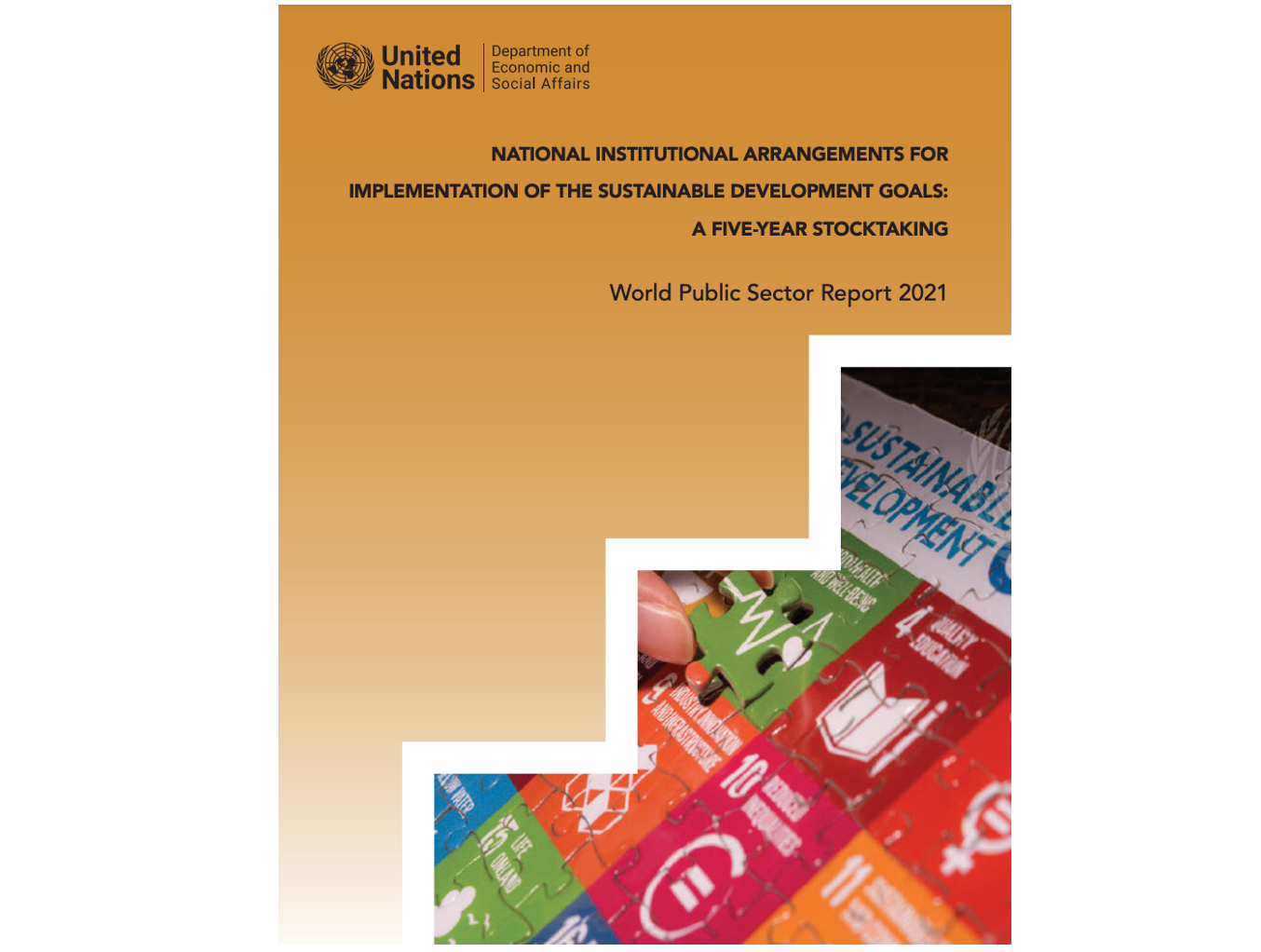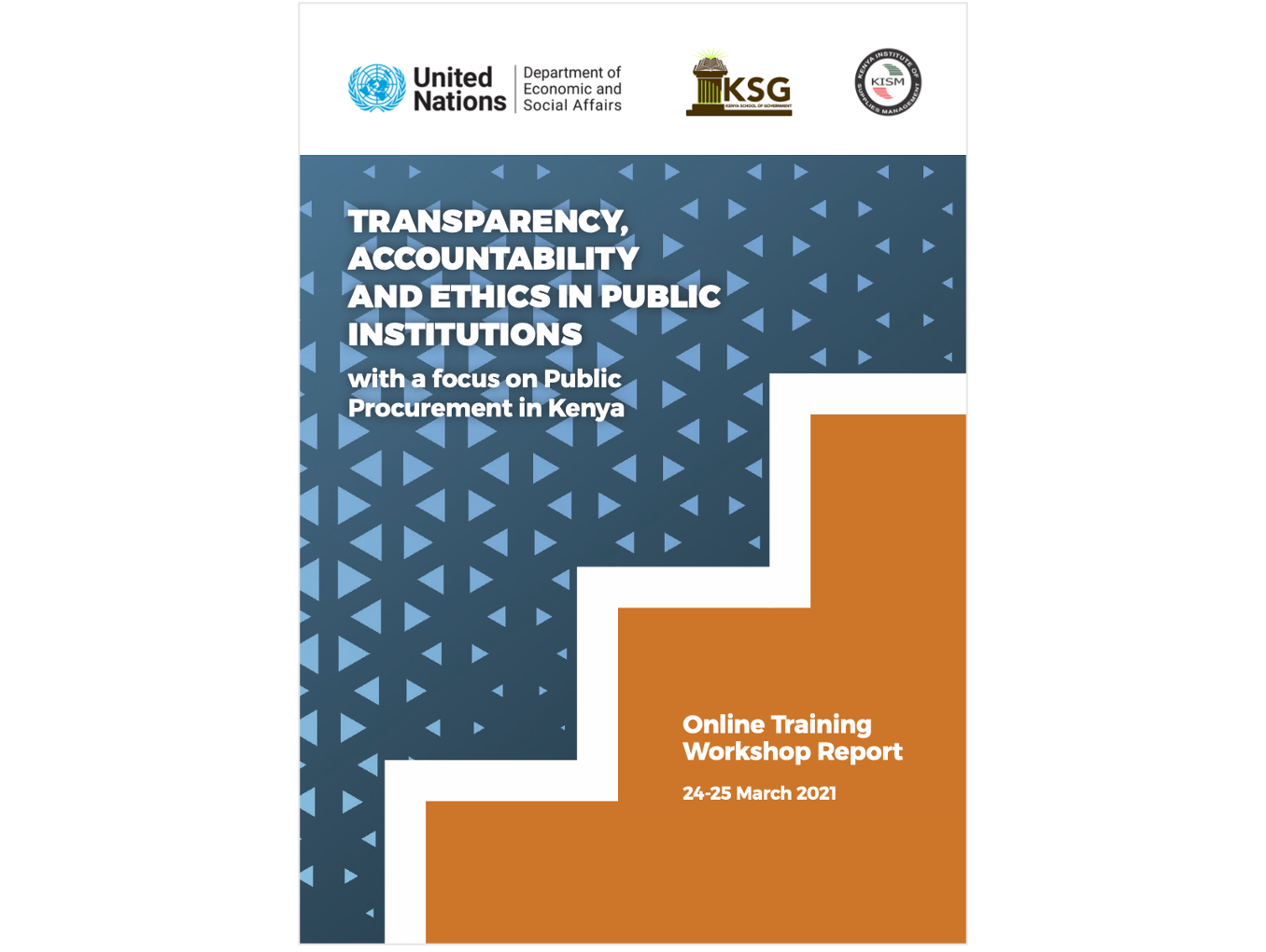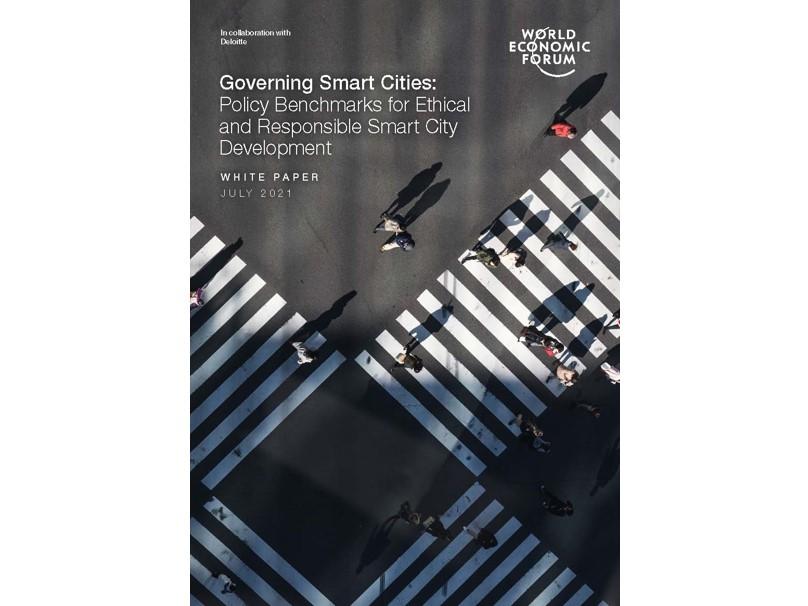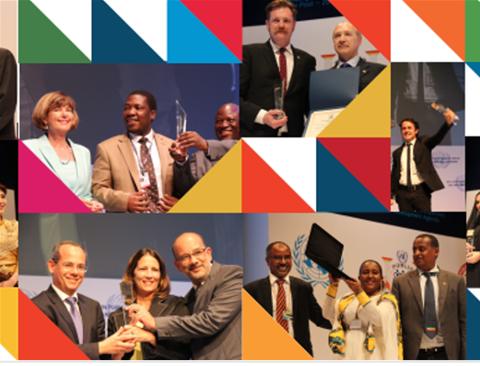Resources
Displaying 25 - 36 of 117
Report on Changing Mindsets to Realize the 2030 Agenda for Sustainable Development
| English | Leadership and Public Servants’ Capacities | Global | Publication | UN DESA/DPIDG
BackgroundThe idea of producing a publication on Changing Mindsets to Realize the 2030 Agenda for Sustainable Development was conceived in 2019 as a follow-up to the workshop on “Mobilizing and Equipping Public Servants to Realize the 2030 Agenda”. The workshop brought together worldwide experts on the subject matter of changing mindsets and allowed for insightful discussions with many schools of public administration. It was organized by the…
UN/DESA Policy Brief #114: Connecting the Dots: The Still Elusive Synergies Between Accountability Institutions and the Follow-up and Review of the Sustainable Development Goals
| English | Governance and Public Institutions | Global | Policy Brief | UN DESA/DPIDG
The 2030 Agenda highlights the importance of the follow-up and review of the Sustainable Development Goals (SDGs) as an accountability mechanism and sets clear principles to guide it. Accountability institutions such as parliaments and supreme audit institutions (SAIs) are playing an increasing role in SDG oversight and assessment. However, while countries have made significant progress in institutionalizing SDG follow-up and review, the…
Handbook on Risk-informed Governance and Innovative Technology for Disaster Risk Reduction and Resilience
| English | Innovation and Service Delivery | Global | Publication | UN DESA/DPIDG/UNPOG
This Handbook is developed based on the Traning of Trainer Toolkit on Risk-informed Governance and Innovative Technology for Disaster Risk Reduction (DRR) and Resilience. The overall learning outcome of this training toolkit is to meet the expectations and respond to the needs expressed in a series of member countries fora and consultations, based on which UN DESA/DPIDG and UNDRR developed this training curriculum and accompanying toolkit. These…
World Public Sector Report 2021
| English | Governance and Public Institutions | Global | Publication | UN DESA/DPIDG
With one third of the implementation period of the Sustainable Development Goals (SDGs) having elapsed, it is important to take stock of how far countries have gone in adapting their institutional frameworks to implement the Goals.
Institutions are paramount to the achievement of the 2030 Agenda for Sustainable Development and all the Sustainable Development Goals (SDGs). This is well recognized in the Agenda itself. Five years after the start…
Report on Transparency, Accountability and Ethics in Public Institutions with a focus on Public Procurement in Kenya
| English | Participation and Accountability | Global | Publication | UN DESA/DPIDG
The United Nations Department of Economic and Social Affairs (UNDESA), together with the Kenya School of Government (KSG) and the Kenya Institute of Supplies Management (KISM), co-organized an online training workshop on Transparency, Accountability and Ethics in Public Institutions with a focus on Public Procurement in Kenya. The two-day virtual workshop was held on the 24th and 25th of March 2021, with each session running for two hours (9:00…
Report on Building Transparent, Accountable and Inclusive Institutions from the UNGASS 2021
| English | French | Participation and Accountability | Global | Publication | UN DESA/DPIDG
The United Nations Department of Economic and Social Affairs (UN DESA) through its Division for Public Institutions and Digital Government (DPIDG), together with the Group of States against Corruption of the Council of Europe (GRECO) co-organized a side event on the theme of Building Transparent, Accountable and Inclusive Institutions at the Special Session of the General Assembly against Corruption (UNGASS) 2021. The virtual event was held on…
Governing Smart Cities: Policy Benchmarks for Ethical and Responsible Smart City Development
| English | Local Governance | Global | Publication | WEF
This report, Governing Smart Cities, provides a benchmark for cities looking to establish policies for ethical and responsible governance of their smart city programmes. It explores current practices relating to five foundational policies: ICT accessibility, privacy impact assessment, cyber accountability, digital infrastructure and open data. The findings are based on surveys and interviews with policy experts and city government officials from…
2021 UN Public Service Awards
| English | Innovation and Service Delivery | Global | Award Programme | UN DESA/DPIDG
The General Assembly, by its resolution A/RES/57/277, designated 23 June as the United Nations Public Service Day to "celebrate the value and virtue of service to the community". The UN Public Service Day intends to celebrate the value and virtue of public service to the community; highlight the contribution of public service in the development process; recognize the work of public servants and encourage young people to pursue careers in the…
Report on Innovation and Digital Government for Public Service Delivery
| English | Innovation and Service Delivery | Global | Publication | UN DESA/DPIDG
This report summarizes presentations and outcomes of a facilitated online training workshop on Innovation, Digital Government and Public Service Delivery for Sustainable Development, which was jointly organized by the United Nations Department of Economic and Social Affairs, through the Division for Public Institutions and Digital Government (UN DESA/DPIDG) and the SIDS Unit of the Division for Sustainable Development Goals (DSDG), in…
KIPA Public Policy Review, Vol.2 Issue 1
| English | Innovation and Service Delivery | Global | Publication | KIPA
The KIPA Public Policy Review, KIPA PPR, is a journal published by the Korea Institute of Public Administration, KIPA. The journal seeks to advance scholarly discourse in public administration and policy and addresses public policy practice by sharing robust policy research findings and best policy practices worldwide.
The Vol.2, Issue 1 contains the following articles:
The Future of Inclusive State amid a Multitude of Crises
Public…
Digital Government Capability Assessment Handbook
| English | Digital Government | Global | Self-Assessment Tool | UN DESA/DPIDG
The Digital Government Capability Assessment (DGCA) is a six-dimension framework of enablers to engage governments in discussions towards digital government transformation. Considering that digital government requires a multifaceted response from governments, the dimensions of the DGCA contain various statements which could guide governments in understanding gaps and policy entry points.
Completing a DGCA will help civil servants build new…
Report of the SDG 16 Conference
| English | Governance and Public Institutions | Global | Publication | UN DESA/DPIDG
The 2021 global SDG 16 Conference – Transforming Governance for a more Peaceful, Just and Inclusive Future: SDG 16 as the roadmap to respond to COVID-19 and build back better – came to a successful conclusion on Friday, 30 April 2021, following six high-level plenary sessions and nine parallel thematic sessions, all held in a virtual format.
Co-organized by the United Nations Department of Economic and Social Affairs (DESA), the International…
 Welcome to the United Nations
Welcome to the United Nations











